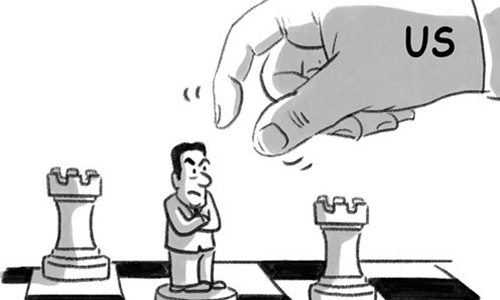We Must Firmly Resist Online Bullying and Build Community with Shared Future for Humanity in Cyberspace
(China) on 20 July 2021
by (link to original)
The report, issued jointly by the National Security Agency, the Cybersecurity and Infrastructure Security Agency and the Federal Bureau of Investigation, smears China for the use of more than 50 cybersecurity tactics, techniques and procedures against the United States and other countries and made this a central component of the evidence against China. However the attack technologies and techniques listed in the report, such as virtual private servers and web shells, are known and common cyberattacks worldwide and do not prove that the relevant activities were carried out by China. Moreover online attacks are by their nature difficult to trace back to their source and difficult to pinpoint. The Microsoft Exchange server vulnerabilities mentioned in the report are publicly shared on open source websites. Any hacker organization or individual could use them after modifying the tools. There is no evidence of any Chinese government support, and it cannot be ruled out that some groups have deliberately created a trail to pin the blame on China.
For a long time now, the U.S. has repeatedly defied international law, violated the basic norms of international relations and used its technological superiority to carry out large-scale, organized and indiscriminate online theft, surveillance and attacks on foreign governments, businesses and individuals. It has even extended its reach to its allies, stealing information on European dignitaries through the intelligence agencies of third countries. America's deplorable behavior has long been well-documented, but the country still wields the weapon of “public opinion” to disguise itself as a cybersecurity “victim,” claiming that it is constantly under attack with the intention of confusing the public. In the absence of any substantive evidence, the U.S. has invented facts, reversed right and wrong and united with many allies to openly accuse China and provoke a direct conflict in cyberspace. The desire to portray a myth as reality not only reflects the Biden administration’s coalition policy but also reveals its intention to join forces with its allies to besiege China. Its deliberate efforts to create momentum only make it more blatant and cannot hide the true face of online hegemony behind the mask of “cyber police.”
Cybersecurity is a global issue that concerns the common interests of all countries. Promoting the transformation of the global system of internet governance is an irresistible trend, and it is what the public wants. The international community needs to work together to protect it. China has always advocated that all countries should jointly respond to non-traditional security threats with cybersecurity at its heart, respecting each nation’s right to choose its own path of digital development, web governance models, internet public policy and equal participation in international cyberspace governance. This does not mean engaging in online hegemony, interfering in the internal affairs of other countries and engaging in, condoning or supporting online activities that endanger the national security of other countries. Cyberspace should not become a battlefield for nations to fight over. The U.S. should immediately abandon its cold war mentality and ideological prejudices and stop its political manipulation of cybersecurity issues. Countries around the world should proactively unite on the premise of mutual respect for digital sovereignty, pay more attention to international cooperation in areas such as cyberterrorism and online crime and strive to build in cyberspace a community of human destiny.


